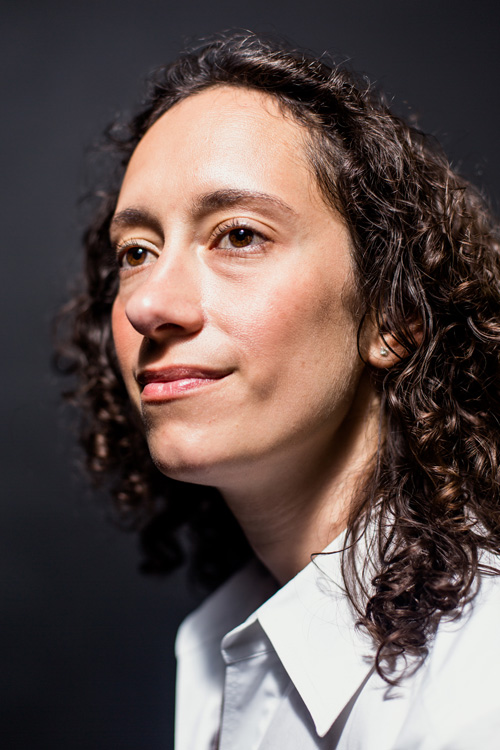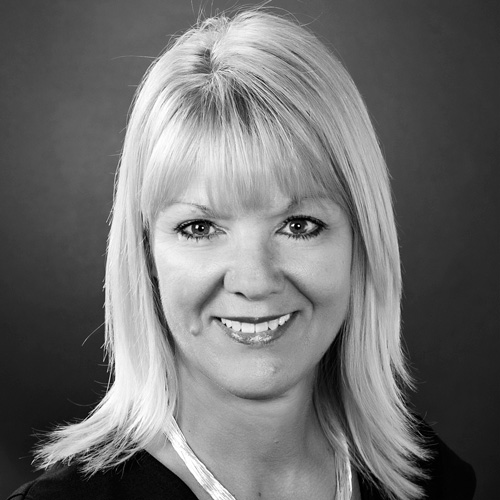When Tara Marszewski got a call from General Growth Properties a few years ago, it wasn’t the one she was expecting. “I actually interviewed for a different job and didn’t get it,” she remembers. “So I didn’t hear back from them, and I thought, ‘Okay, fine.’ But then I got a call back to come in for an interview for another position entirely.”

She’s glad she did. Marszewski, who was recently named a retail real estate rising star by Chain Store Age, is a senior vice president and chief accounting officer at General Growth Properties (GGP), the United States’ second largest mall operator. GGP is a self-managed and self-administered real estate investment trust (REIT) that has a portfolio of 120 regional shopping malls in forty states. The company has 1,800 employees, with approximately 240 in accounting.
Before coming to GGP, Marszewski, who holds a bachelor’s degree in accountancy from the University of Illinois Champaign-Urbana, spent close to a decade at Big Four accounting firm KPMG, where she advanced to a senior manager role in the real estate audit practice.
A Best-in-Class Comeback
When Marszewski joined GGP in January 2012, the company was in the rebuilding process after coming out of bankruptcy in late 2010. Guiding this transition, Marszewski says, was a strong set of principles. “We emerged from bankruptcy with a whole new management team, and the story is really one of that group of people sitting down and coming up with a clear strategy and a business plan for the company,” she says. “They made the fundamental decision that they wanted to be the owner of the best-in-class retail. So they went about a process to figure out how to get there.”
This process included spinning off two public companies, the Howard Hughes Corporation and Rouse Properties. “Bigger isn’t always better,” Marszewski says. “We disposed of a lot of non-core properties and we are now looking forward with a set of assets that we want—high-quality properties in key locations.”
When to Pace Growth
As the company moves forward, Marszewski says that the lessons of bankruptcy have remained close at hand. “Five years out of bankruptcy, we’re not required anymore to talk about how strong our balance sheet is, but it’s still very important to us,” she says.
Since emerging from bankruptcy, the company has slowly started to develop a growth strategy that Marszewski describes as organic—GGP now focuses on growing from within the business. “We leased up a lot of space and have a significant development pipeline where we’re rebuilding and repurposing assets,” she says.
The second prong of the company’s growth strategy has been acquiring new, complementary assets at a careful pace. “Recently we ventured into a complementary platform in street retail,” Marszewski says. The company has acquired a small portfolio of no more than a dozen street retail assets, with some recent sizeable acquisitions in the past eighteen months. “We want to get some of these assets and prove our theory that it’s a complementary business, and that we can manage it successfully,” she says. “We’ll continue to look at more investments, but we take a measured approach to such growth.”
Collaborative Culture Works
Marszewski spent two and a half years in the financial reporting department before her promotion to chief accounting officer in October 2014. The biggest surprise in her new role is “how little time I actually spend doing accounting,” she laughs. “It’s all my responsibility now,” she adds. “I spend a lot of time on IT, managing people and performance, and leading the department.”
She oversees a department of approximately 240 people who do everything from billing, collections, payables, and property level accounting, to securities and exchange commission and management reporting. “You name it, we do it on the accounting front,” Marszewski says. Leading a large, diverse department has brought home the importance of real collaboration. “You really just need to realize that not any single one of you could do what you do without the rest of the team,” she says. “It takes a lot of people to move the bus along.”
Moving that bus along, so to speak, has taught Marszewski how important it is to treat everyone like they’re important in the process, she says, adding, “Only then can you create a culture of collaboration that works.” She strives to set clear, concrete expectations for people and emphasizes the importance of asking good questions.
The collaborative culture at GGP also encourages people to grow in their roles, which Marszewski appreciates. “It’s a company where we continue to ask ourselves, ‘What are you doing for those people to make sure that the organization is set up in a way that maximizes the strengths of everyone?’” she says.
It’s a system that works, Marszewski says, and she looks forward to a bright future. “In five years, I’d like to be here, continuing to learn in any capacity,” she says. “GGP is a great company, and I’m learning every single day. There is an incredible amount I can still learn about the industry and the business.”

